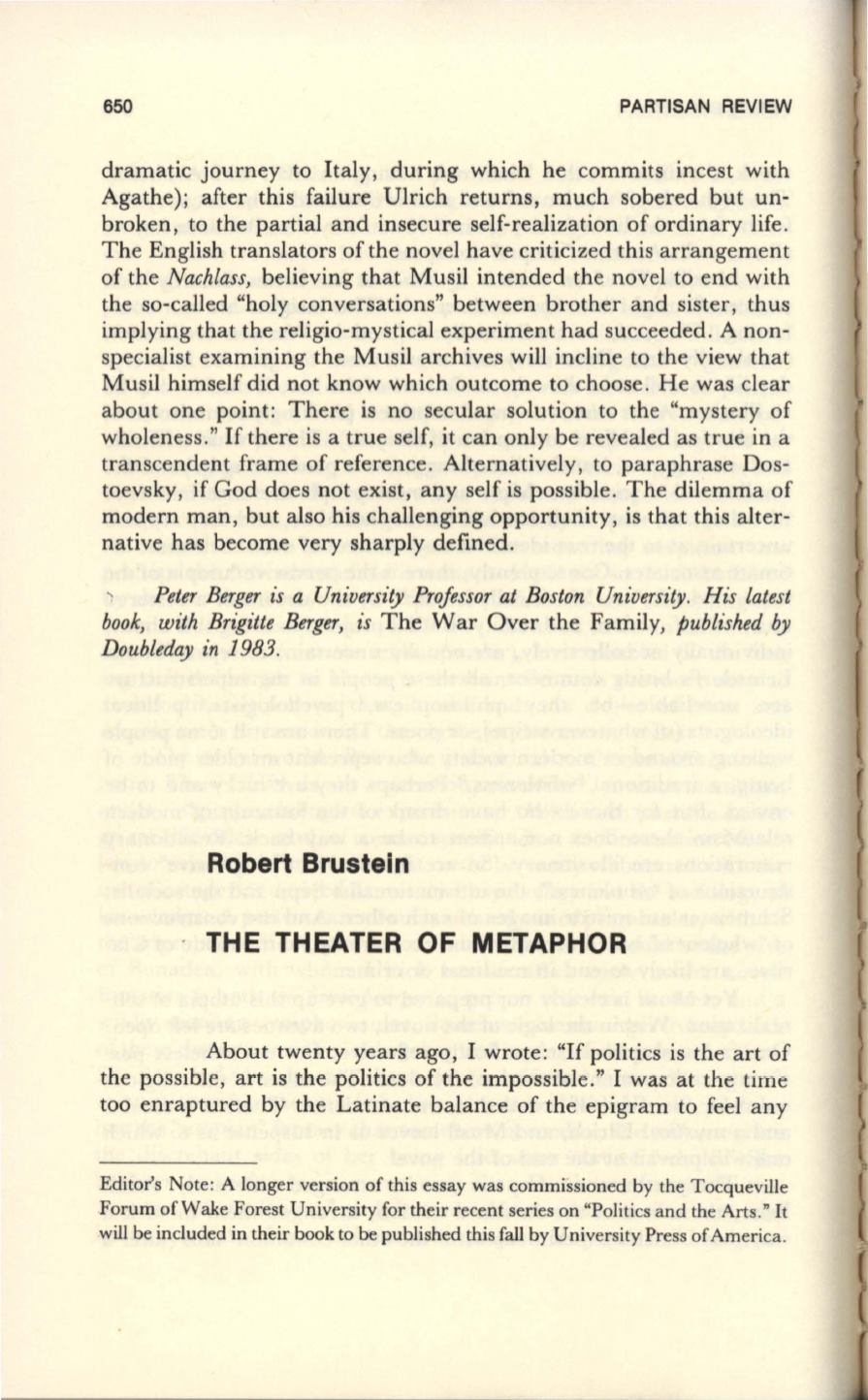
650
PARTISAN REVIEW
dramatic journey to Italy, during which he commits incest with
Agathe); after this failure Ulrich returns, much sobered but un–
broken, to the partial and insecure self-realization of ordinary life.
The English translators of the novel have criticized this arrangement
of the
Nachlass,
believing that Musil intended the novel to end with
the so-called "holy conversations" between brother and sister, thus
implying that the religio-mystical experiment had succeeded. A non–
specialist examining the Musil archives will incline to the view that
Musil himself did not know which outcome to choose. He was clear
about one point: There is no secular solution to the "mystery of
wholeness."
If
there is a true self, it can only be revealed as true in a
transcendent frame of reference. Alternatively, to paraphrase Dos–
toevsky, if God does not exist, any self is possible. The dilemma of
modern man, but also his challenging opportunity, is that this alter–
native has become very sharply defined.
Peter Berger is a University Professor at Boston University. His latest
book, with Brigitte Berger, is
The War Over the Family,
published by
Doubleday in 1983.
Robert Brustein
THE THEATER OF METAPHOR
About twenty years ago, I wrote: "If politics is the art of
the possible, art is the politics of the impossible." I was at the time
too enraptured by the Latinate balance of the epigram to feel any
Editor's Note: A longer version of this essay was commissioned by the Tocqueville
.Forum ofWake Forest University for their recent series on "Politics and the Arts."
It
will be included in their book to
be
published this fall by University Press ofAmerica.


